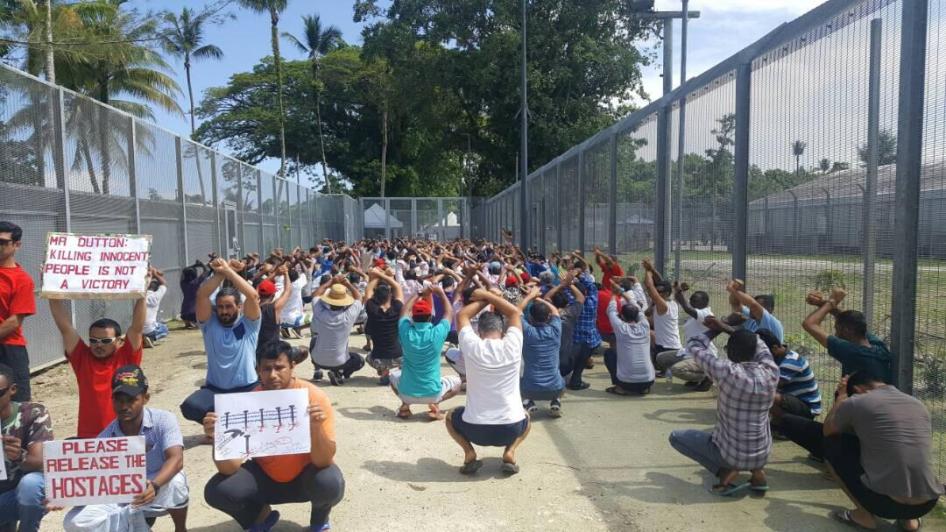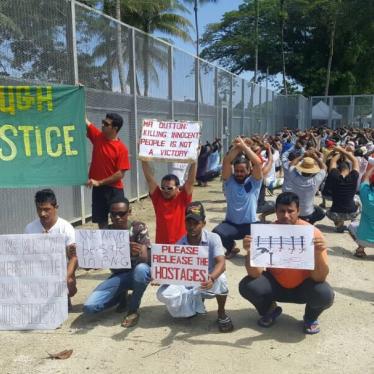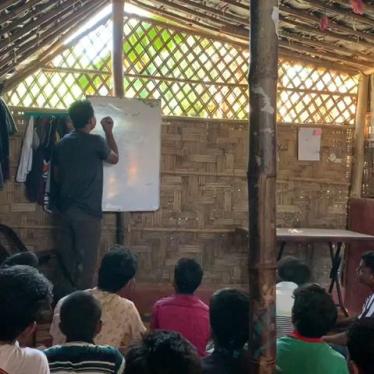“People have lost hope,” Aziz tells me. “What energy they have – they want to use it to survive. They are desperate and powerless. They never think about their future.”
I look across the table at the man in front of me – at 24 he is about my age, wearing the same clothes as my friends from home – we could easily have been sitting across from each other at a cafe in Sydney. But we are not in Australia. We are on remote Manus Island in Papua New Guinea, where in the past four years the Australian government has transferred Aziz and about 1,500 other men for offshore processing. Processing implies moving something from start to finish, but for Aziz and the others there is no end in sight.
After fleeing war-torn Sudan, Aziz sought asylum in a boat journey to Australia. Instead of finding protection, he has spent over four increasingly dangerous years in limbo.
Each of the men I speak to tells another heartbreaking story: why they were forced to leave their own country, stories of family members they have lost or children they’ve never met, why they can never return home. They tell me that all they want is safety and freedom, and it is during these moments that I can’t help but feel ashamed of my own government. I’m at a loss trying to explain why Australia is continuing to turn a blind eye to the ongoing abuses here on Manus and also on the island nation of Nauru, where asylum-seeking families have been sent. When asked what he would tell prime minister Malcolm Turnbull if he had the chance, one refugee says, “Come and stay here for one week – even one day – and see if you can manage living in this place.”
About 600 refugees and asylum seekers live in the main regional processing centre, which is on a naval base and remains fenced-off and guarded, although the men are allowed to leave the centre at scheduled times by bus. Approximately 65 refugees live in a transit centre closer to the main town of Lorengau. Refugees and asylum seekers I spoke to were afraid of making trips from the centres out of fear of attacks by local men. “Locals think we are criminals or terrorists,” one refugee said. “They say if you are good people, Australia would never dump you here.”
All the men I talked with had been harassed or robbed by groups of local young men and some attacked with bush knives and machetes. In July, officials airlifted one man to Port Moresby for urgent medical treatment after an assailant cut his wrist with a kitchen knife. I saw his scar. Often these attacks occur at night, but some happen in broad daylight in public places. The refugees and asylum seekers sometimes file complaints with the police, but they say the police do nothing.
A number of the refugees and asylum seekers on Manus have mental health conditions exacerbated by years of detention and uncertainty about their future. They have witnessed self-harm and suicide attempts. Earlier this month, a refugee with a mental health condition was found dead from a reported suicide, becoming the sixth asylum seeker or refugee to die on Manus Island.
The Australian government has announced that the main centre will close by 31 October, so Australian and Papua New Guinean authorities are demolishing sections of the centre, cutting off the water and electricity supply, and pressuring the men to move to less secure facilities on the island where they don’t feel safe.
While the United States agreed to resettle a few dozen refugees from Manus and Nauru, the men know that not everyone will be resettled under this arrangement, leading to further uncertainty and anxiety.
United Nations bodies and experts have repeatedly urged Australia to end offshore processing but the Australian government has rejected these calls. Now the situation is at a crisis point.
I was raised to be proud of my country, but the mistreatment of these men who sought our protection does not reflect the Australia I know.
Instead of constantly finding new ways to keep these men from Australia’s shores, the government should end this shameful warehousing once and for all. It should immediately bring these people to Australia, admit and integrate those found to be refugees, fairly process those with pending asylum claims, and reassess the claims of failed asylum seekers before forcibly returning them to their home countries.
Aziz and I continue to stay in contact over Facebook. While my friends in Australia post photos of weddings or updates about work, Aziz posts about Manus and his fears when the centre is closed. My hope is that one day soon I’ll come across a photo of Aziz standing in his academic robe at his graduation or sitting with friends at a soccer match and I’ll know that the future he deserved, but didn’t dare dream of, has become a reality.









